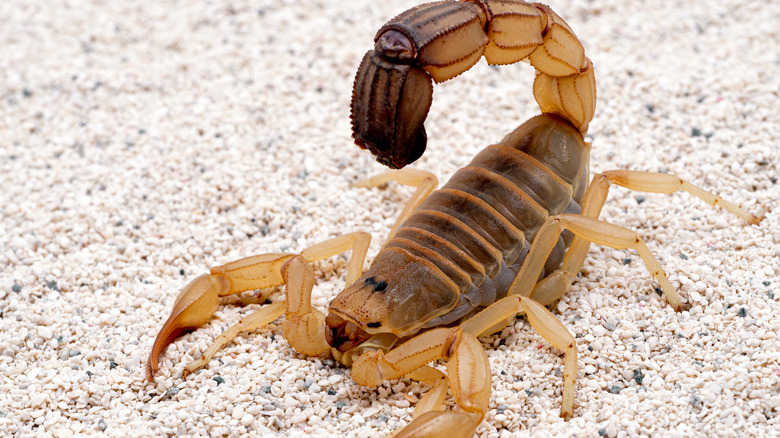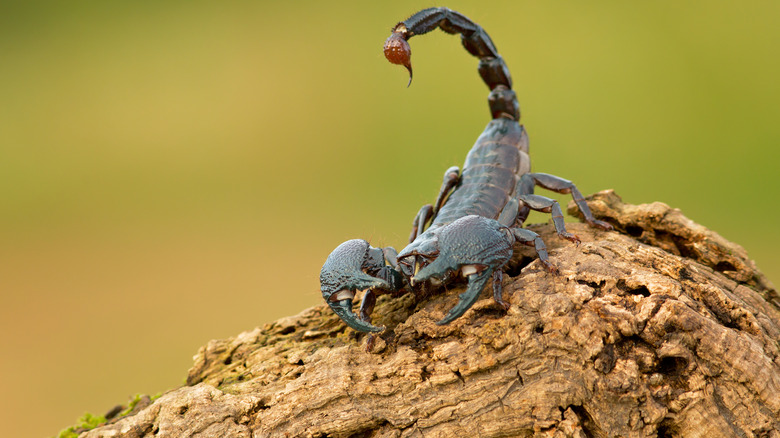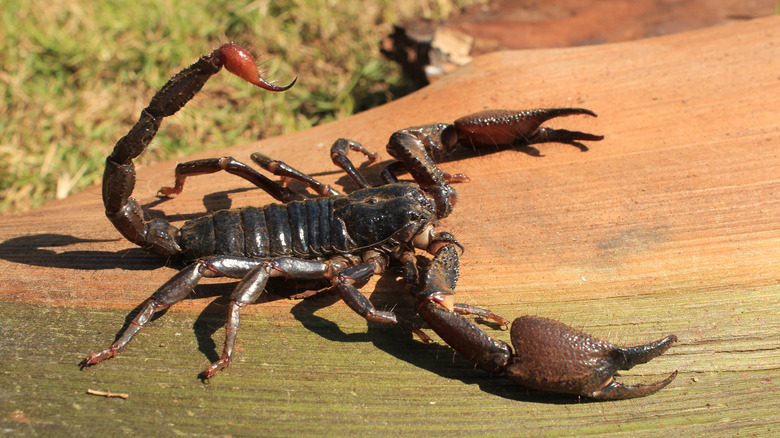Scorpions Can Go Longer Than You Thought Without Food Or Water
We've all experienced hunger and thirst. By the end of a long shift, when we've had to skip lunch, we'll truly feel the effects. Skipping a meal can be problematic enough, but it's frightening to consider just how quickly these effects can prove fatal.
In the study "[Survival time without food and drink]" (via the National Library of Medicine), Pia Kottusch et al. state that human beings can die within just eight days without sustenance, sometimes surviving up to around eight weeks. Of course, there's a tremendous variation because there are so many contributing factors to consider. Healthline adds that a person's age, environment, and general health are just some influences on this.
It's all relative, really, as this could be considered a very long or very short time to be able to survive. It seems, however, that the humble scorpion will last for far, far longer than any human probably ever could without sustaining themselves.
The scorpion's marvelous metabolism
Now, there are all kinds of curious eating habits in the animal kingdom. If you thought your ability to eat an entire packet of Oreos in five minutes was a bit uncanny, it's really nothing special. The blue whale eats a monstrous amount of krill: four tons of it on a daily basis (via National Geographic). That's quite the appetite, by anyone's standards. Other animals eat larger amounts relative to their body weight, which seems to keep them sustained for longer. It's all about the metabolism, and scorpions have very special ones that enable them to survive in the barren environments in which they often dwell.
Scorpion biology, per HowStuffWorks, centers around efficiency. They generally don't expend energy unnecessarily, preferring to bide their time and pounce on insect prey that blunder within reach rather than actively hunting. In "Scorpions of Southern Africa," author Jonathan Leeming explains how their bodies are adapted both to their lifestyle and this harsh environment. "They may gain as much as a third of their body weight from a single feeding," Leeming writes, adding that "scorpions have very low metabolic rates ... [which allow] many scorpions to go without food for as long as a year or more."
437 million years of survival
These hardly little armored souls have lived for a very, very long time. In January of 2020, Andrew J. Wendruff et al. published the paper "A Silurian ancestral scorpion with fossilized internal anatomy illustrating a pathway to arachnid terrestrialisation" (via Scientific Reports). It shares the discovery of fossilized scorpion remains, seeming to date back around 437 million years. They were found in Wisconsin's Waukesha Biota, representing some of the earliest species to adapt to life on land.
Being the consummate survivors they are, it's no surprise that scorpions can survive such outlandish lengths without food. Have you ever eaten an enormous Thanksgiving feast and felt as though you won't need to eat again for at least a year? Well, yes, probably, but these little arachnids can really do it, and that's very impressive indeed.
This, surely, is why scorpions are so prolific around the world. They can adapt to life in regions that would challenge so many other species, all while maintaining their energy levels with the expertise of a sloth.


